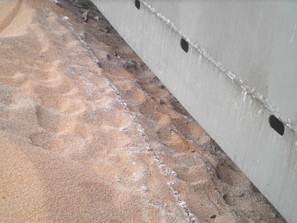The Association has been advised that recently significant quantities of corn cargoes originating in the U.S.A. were rejected in China, allegedly on the basis that they contained a genetically modified strain unapproved by China's Ministry of Agriculture.
Various news media reports, including the BBC quoted this as involving a strain called MIR162, and this apparently affected 12 batches of cargo amounting to some 545,000 metric tons.
While China does permit the importation of some types of GM Agricultural cargoes, at present MIR162 is not yet on the approved list.
As Shipowners, being offered a fixture, may not have direct contact with the Shippers, and as cargoes may be generically described as "Corn in bulk" or "Soyabean in bulk", it would be prudent for any Chinese destined cargo to ask Charterers to advise in advance if the intended cargo is a GM Crop and whether it is a type that is acceptable in China. Alternatively it may be prudent to ask Charterers to warrant in the fixture that the intended cargo is in any event of a grade and type acceptable in China.
The consequences of a rejected shipment can be very significant, as serious loss of time may result as well as high levels of expense in dealing with such a situation. In addition there could be significant cargo liability claims arising, not least given that corn, soyabean, and other agricultural cargoes can be quite time sensitive during sea voyages, and a prolonged delay at the discharge port could see serious deterioration in the quality of the cargo. Mould, mildew, "sweat" and "heat" damage are all common issues which can give rise to significant claims.

Soyabean cargo affected by mildew

Soyabean cargo affected by heat damage
The Association would also refer Members to previous advices concerning general issues with shipments of Soyabeans and the fumigation of such cargoes.
The following has been prepared with the kind assistance of China P&I, Beijing.